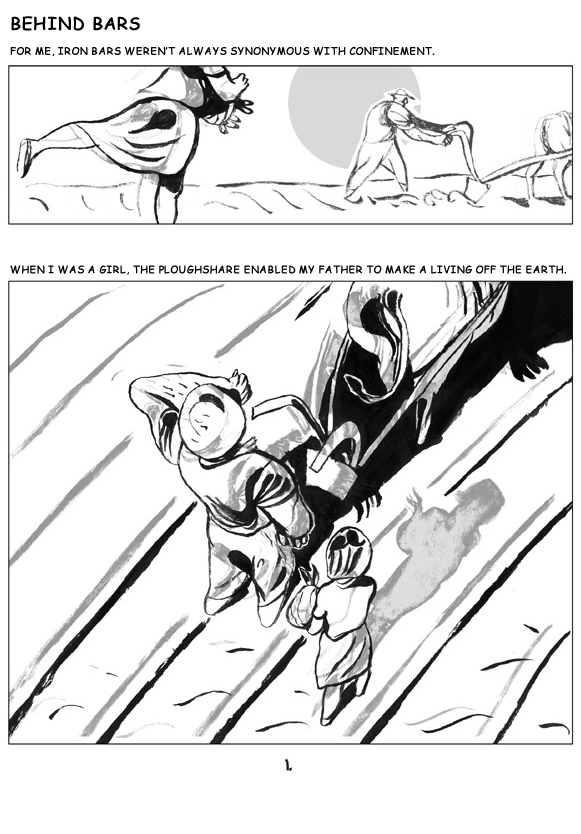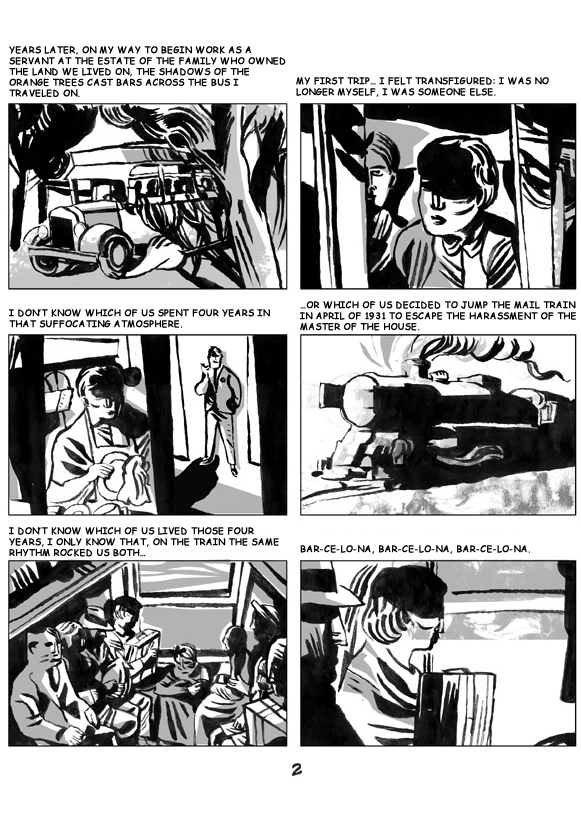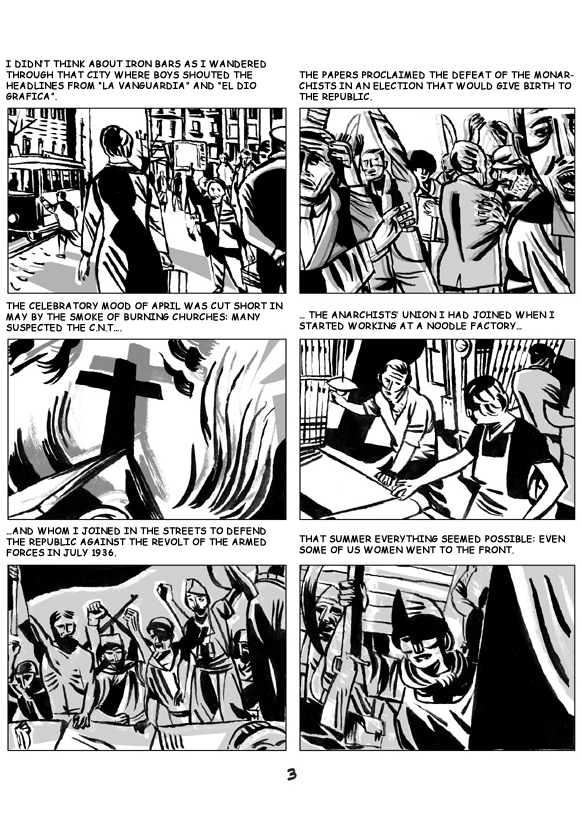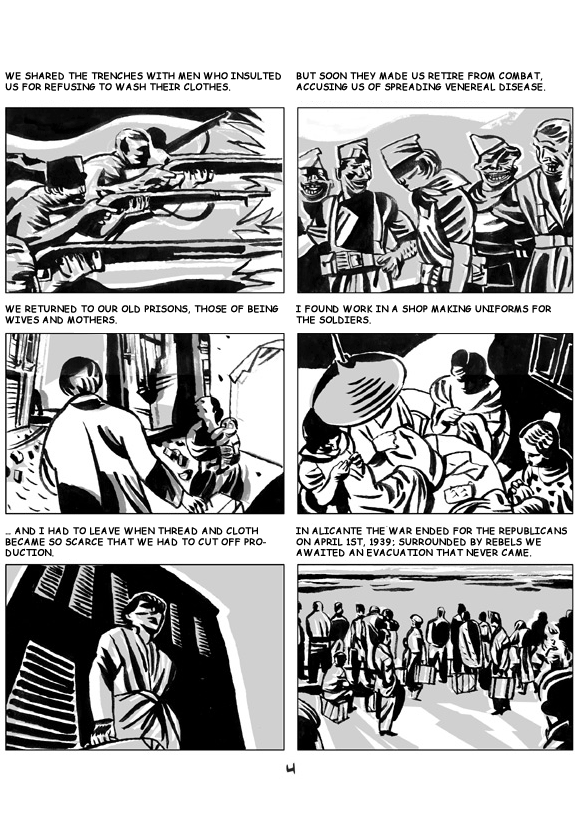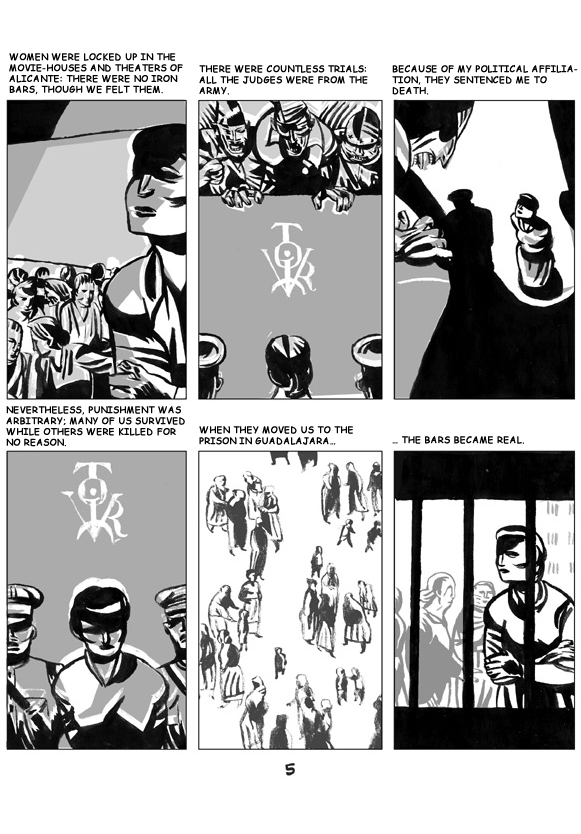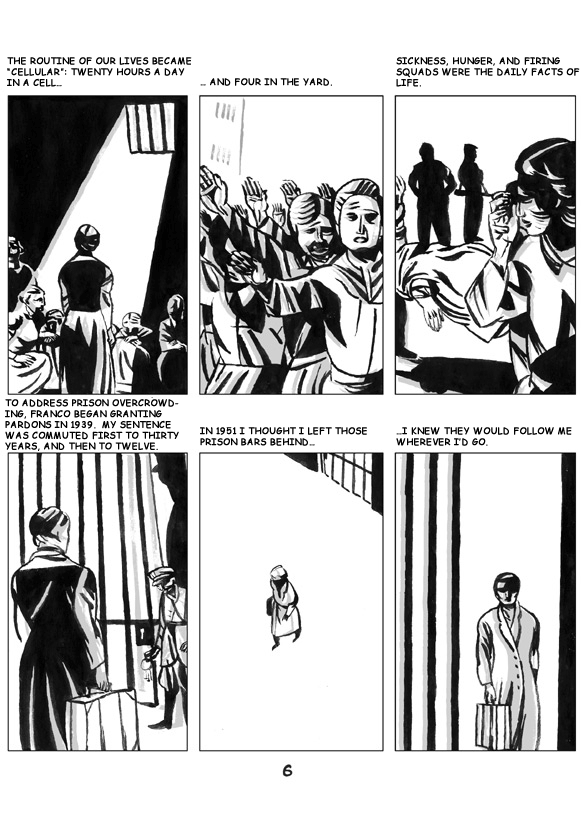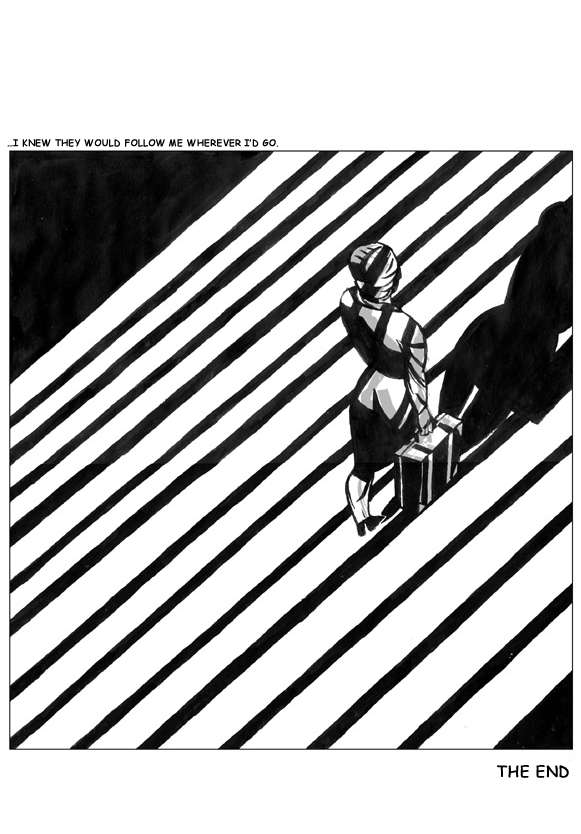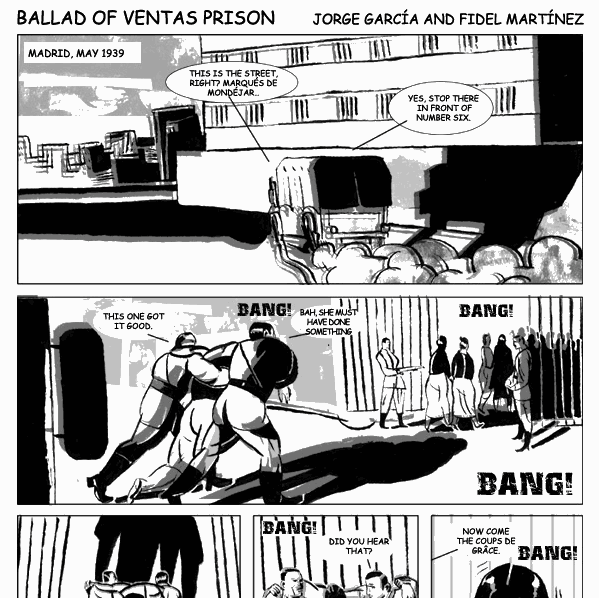For me , iron bars weren't always synonymous with confinement .
When I was a girl , the ploughshare enabled my father to make a living off the earth .
ears later , on my way to begin work as a servant at the estate of the family who owned the land we lived on , the shadows of the orange trees cast bars across the bus I traveled on .
My first trip ... I felt transfigured : I was no longer myself , I was someone else .
I don't know which of us spent four years in that suffocating atmosphere .
..or which of us decided to jump the mail train in April of 1931 to escape the harassment of the master of the house .
I don't know which of us lived those four years , I only know that , on the train the same rhythm rocked us both ....
Bar - ce - lo - na , Bar - ce - lo - na , Bar - ce - lo - na .
I didn't think about iron bars as I wandered through that city where boys shouted the headlines from " La Vanguardia " and " El Dio Grafica " .
The papers proclaimed the defeat of the monarchists in an election that would give birth to The Republic .
The celebratory mood of April was cut short in May by the smoke of burning churches : many suspected the C.N.T ...
The anarchists union I had joined when I started working at a noodle factory ..
And whom I joined in the streets to defend The Republic against the revolt of the armed forces in July 1936 .
That summer everything seemed possible : even some of us women went to the front .
We shared the trenches with men who insulted us for refusing to wash their clothes .
But soon they made us retire from combat , accusing us of spreading venereal disease .
We returned to our old prisons , those of being wives and mothers .
I found work in a shop making uniforms for the soldiers .
And I had to leave when thread and cloth became so scarce that we had to cut off production .
In Alicante the war ended for The Republicans on April 1st , 1939 : surrounded by rebels we awaited an evacuation that never came .
Women were locked up in the movie-houses and theaters of Alicante : there were no iron bars , though we felt them .
There were countless trials : all the judges were from the army .
Because of my political affiliation , they sentenced me to death ,
Nevertheless , punishment was arbitrary ; many of us survived while others were killed for no reason.
When they moved us to the prison in Guadalajara ...
the bars became real .
The routine of our lives became " cellular " : twenty hours a day in a cell ..
and four in the yard .
Sickness , hunger , and firing squads were the daily facts of life .
To address prison overcrowding , Franco began granting pardons in 1939. My sentence was commuted first to thirty years , and then to twelve .
In 1951 I thought I left those prison bars behind ..
I knew they would follow me wherever I'd go .
I knew they would follow me wherever I'd go .
The end







